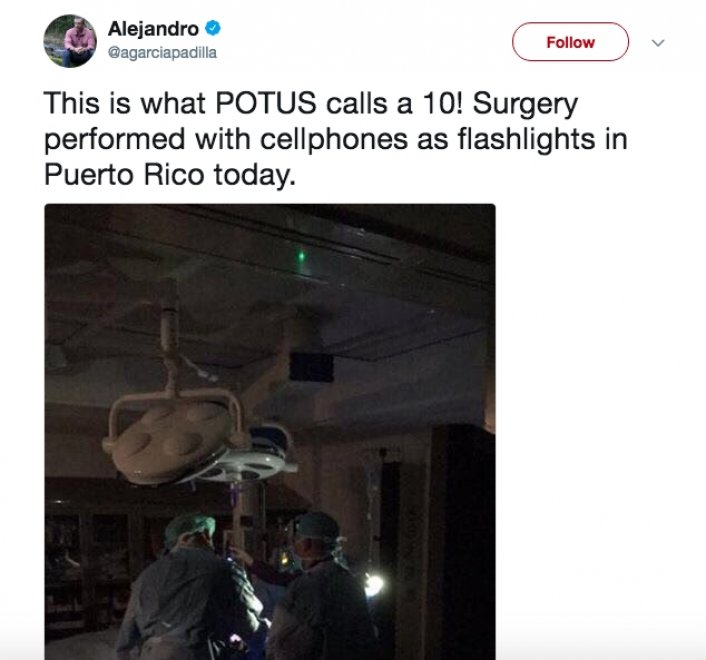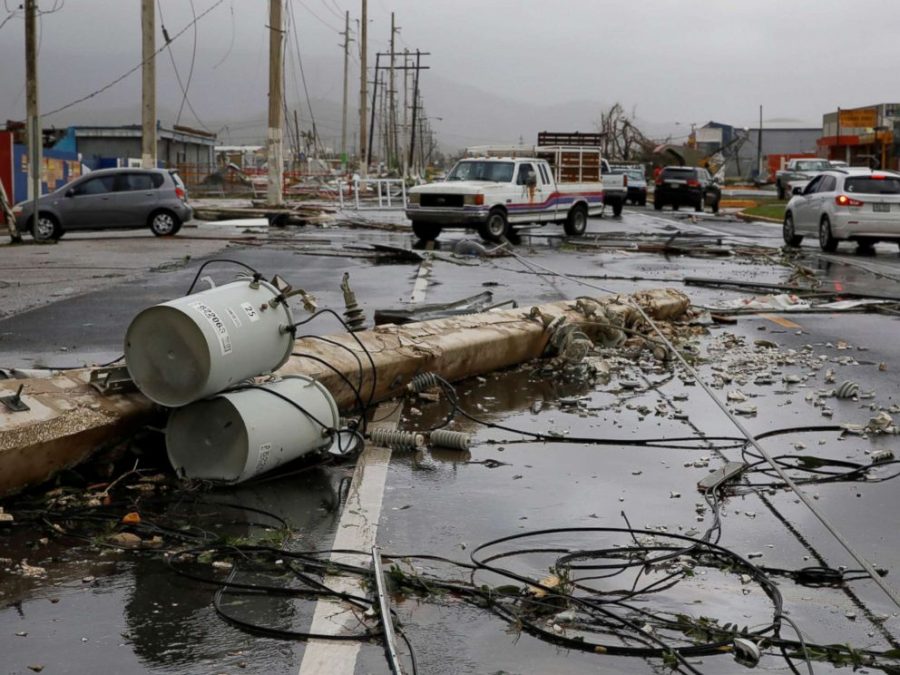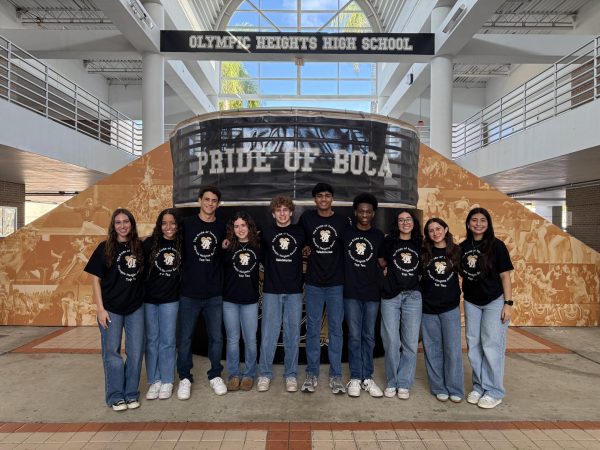Puerto Rico Years Away from Hurricane Maria Recovery
Scenes of devastation such as this were common across Puerto Rico as Hurricane Maria obliterated the island’s power grid.
Over the past month, Puerto Rico has been struggling to compete with the numerous issues following the impacts of Hurricane Maria. Dr. Antonio Rodriguez Mimoso, an OBGYN in San Juan, Puerto Rico, was on call when Maria hit Puerto Rico as a category 4 hurricane. The 150 mph winds ended up knocking out Puerto Rico’s power grid, leaving the island figuratively and quite literally in the dark.
“It was quite scary,” said Mimoso, who had driven to Ashford Presbyterian Community Hospital that night to deliver a baby. “There were no traffic lights, no street lights, nothing.” Conditions were the same at the hospital itself. Since then, these issues still have not been resolved, and over the past month the people of Puerto Rico have been learning to live without electricity.
Life without electricity in this circumstance is very dangerous, as doctors in Puerto Rico are forced to perform risky medical procedures as 80 percent of the island functions without power. This is only the beginning of the crisis Puerto Rico is facing today, as other issues have been unraveling due to the issue of no electricity.
Without electricity, the water disposal and delivery system cannot function as it is entirely dependent on the energy. Without said energy, sewage backing up in to the drinking water, completely contaminating the supply. This problem is leading to disease spreading throughout Puerto Rico.
Also, the recovery and relief effort has been seriously hampered due to problems with communication as a result of there being no electrical power. At first, supplies were being delivered, such as oil, food, and water, but this act was considered irrelevant when people were unable to receive information as to where or how to retrieve these items.

As a response to this crisis, Puerto Rico’s former governor Alejandro Garcia Padilla tweeted a photo the previous weekend. The photo showing doctors performing surgery illuminated only by flashlight, is captioned, “This is what POTUS [referring to President Trump] calls a 10! Surgery performed with cell phones as flashlights in Puerto Rico today.”
Some may be unaware that being a U.S. territory, Puerto Rico is entitled to the same governmental aide that states such as Texas and Florida have received after being hit by Hurricanes Harvey and Irma respectively.
Padilla’s photo had captured the critical situations people were thrown into due to the category 4 winds of Hurricane Maria. After the photo was released, others seemed to lash out at the former governor and put the blame for the electricity on his doorstep. Erick J Morales, a professional with industrial engineering, had written, “Don’t be fooled by Garcia Padilla’s bait. His admin neglected the PR power grid too. The problem is incompetence and corruption.
Prior to the hurricane, Puerto Rico was already more than $70 billion in debt. Due to its economic decisions and now the destruction from Hurricane Maria, the recovery of Puerto Rico has been pushed back to 12 to13 years. In order for Puerto Ricans to regain their stance, assistance is necessary.
Puerto Rico’s Secretary of the Treasury Raul Maldonado, said the situation in Puerto Rico could get worse without help from congress. “If we don’t get the help we need, this will be a national disaster,” Maldonado stated. “We’re not looking for a handout; we’re just looking for some help to get back on our feet.”
With these intense conditions, it is important to remember the families affected due to the destruction of the island. As the number of victims rise, our compassion must escalate with this. As psychologist Paul Slovic said, “Even partial solutions can save whole lives.”










prusmc • Nov 1, 2017 at 4:49 pm
How do you access the comments to this posting?
The Torch • Nov 9, 2017 at 9:14 am
You just did. Yours is the only comment on this posting. Thanks for visiting our website! – The Torch